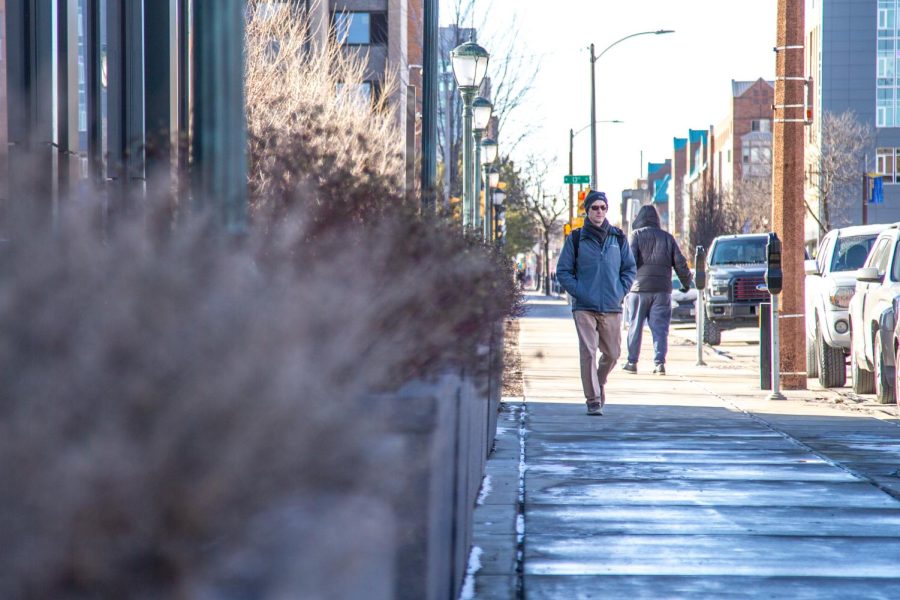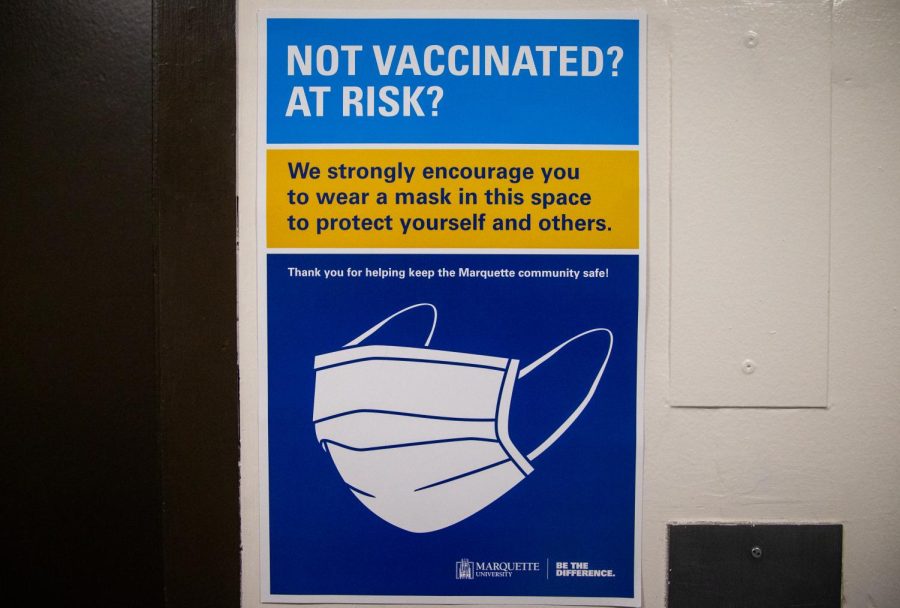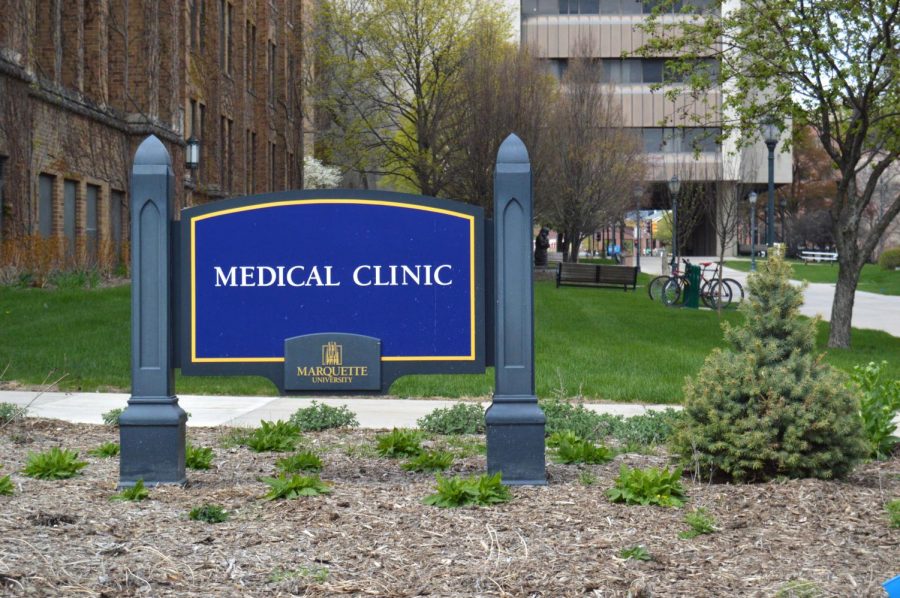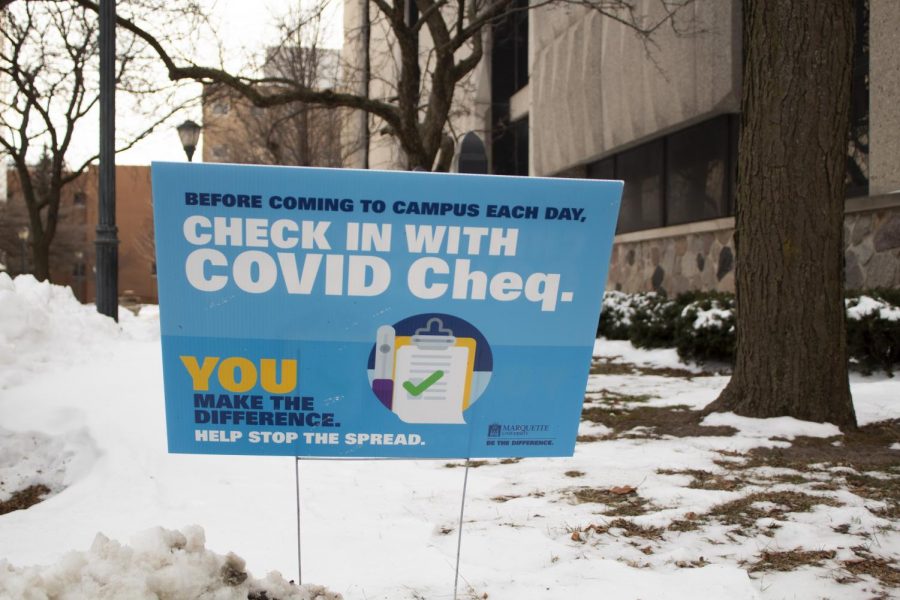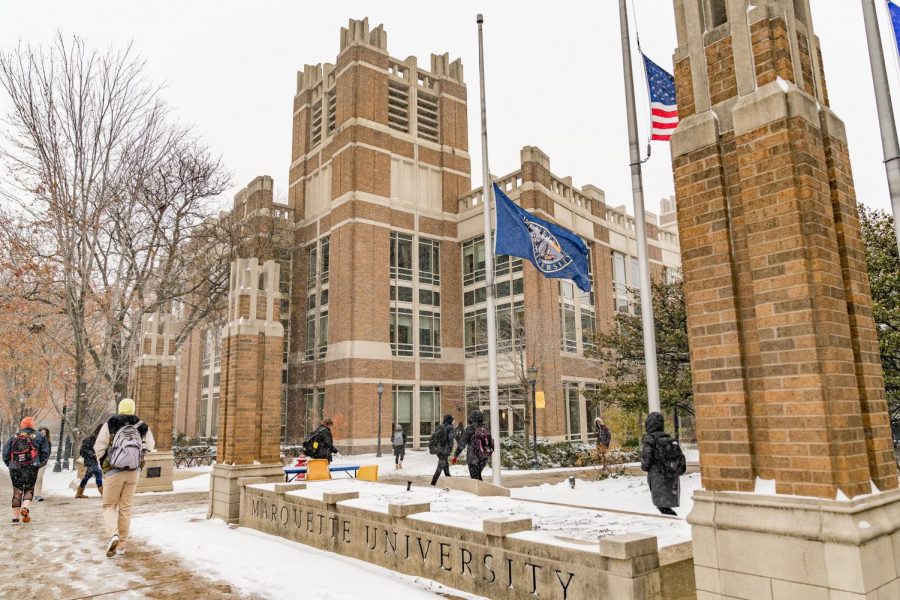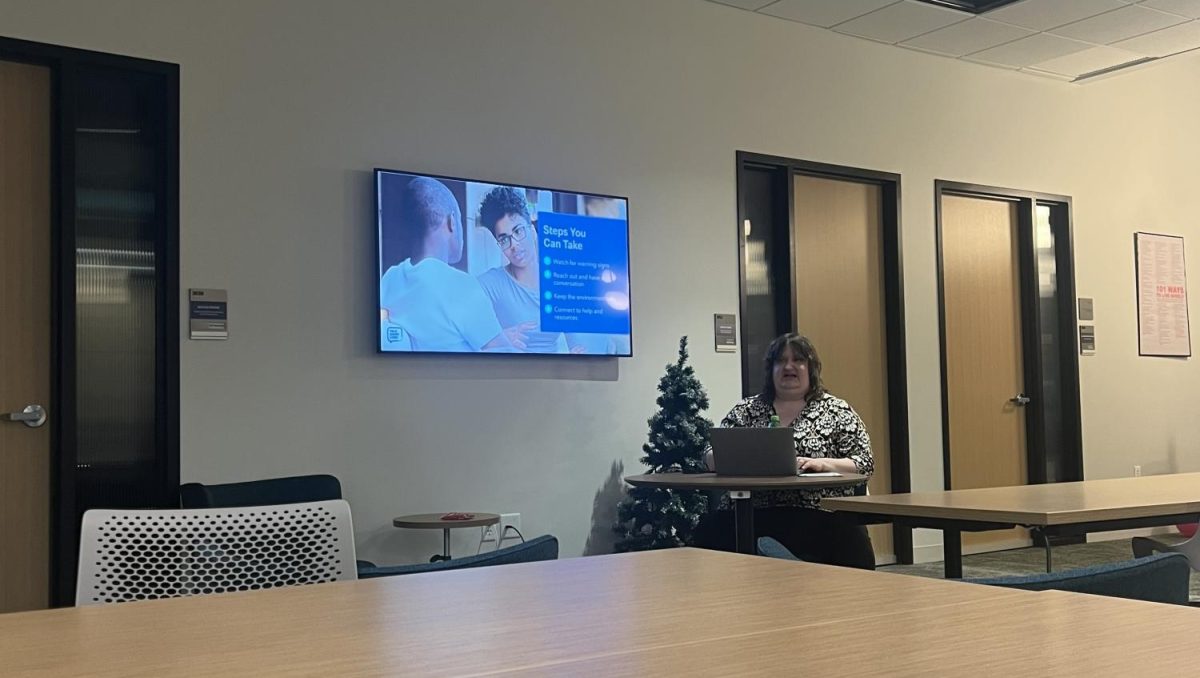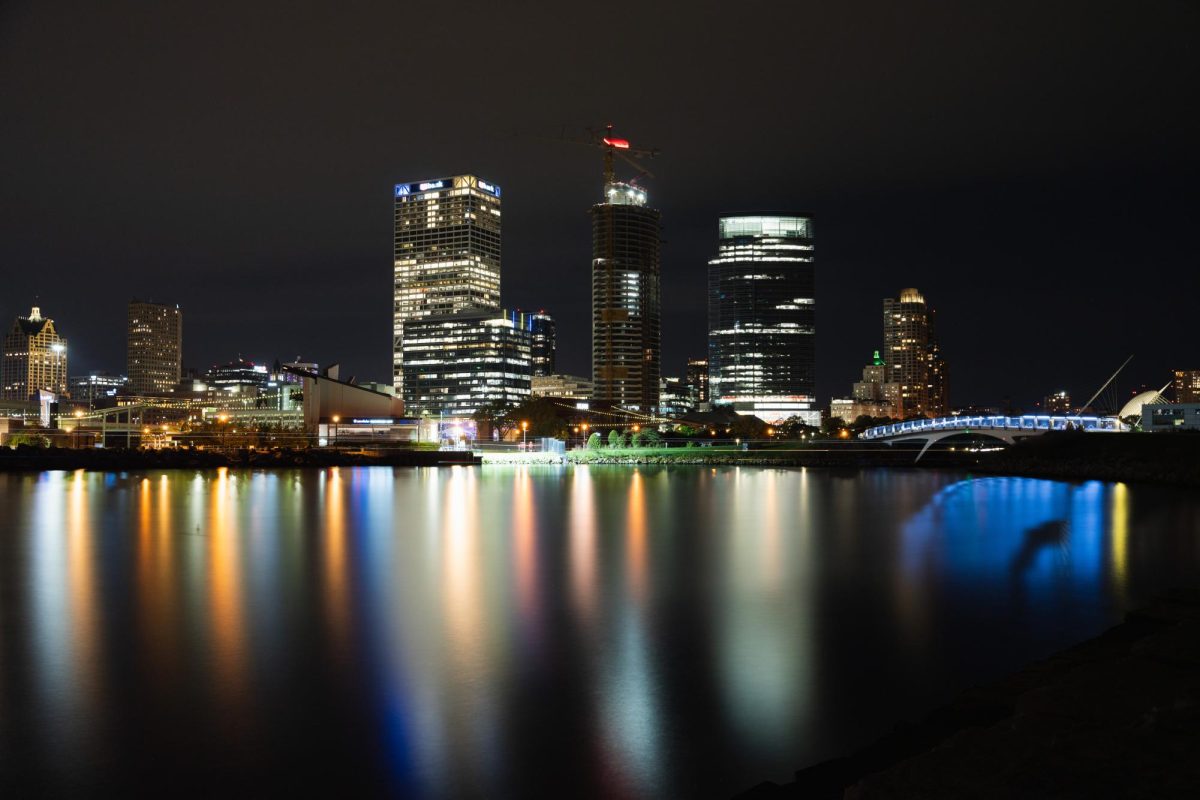Since the official start of the COVID-19 pandemic, universities across the United States have gone through transformations in the hopes of providing a “safe” environment to educate students.
Over 68 million COVID-19 cases have been reported in the U.S. since cases first started being tracked in the country two years, according to the Centers for Disease Control and Prevention Jan. 19.
As undergraduate students begin a new semester this week, Marquette University has taken action against COVID-19 in an effort to create an environment that protects the “health, safety, and well-being” of its students. However, instead of ensuring the health and safety of the students, Marquette’s actions appear to be performative and regressive. In the COVID-19 climate that students now find themselves in due to the omicron variant, the return to a normal, in-person college experience seems far away.
These actions consisted of delaying the start of a second semester, canceling in-person retreats such as the LeaderShape Institute and requiring all students to upload proof of COVID-19 booster by Feb. 1. Along with these measures, Marquette extended its mask policy inside the classroom, residence halls and other public spaces across the university. The self-reported symptom tracker, COVID Cheq, must be shown in order to enter spaces such as the dining halls and library.
Contract tracing, which tracks COVID-19 exposures in classrooms and extracurriculars, and different modalities for classes, such as the option to go online for a class, are also aspects of Marquette life that supposedly help to protect students’ safety.
Every action that Marquette attempts to take in ensuring the safety of its students is not actively enforced or effective on campus and is merely a performative act of public statement. These protocols include the mask mandate, COVID Cheq and delaying the start of the spring semester. In its most recent announcement on COVID-19 protocols for campus, the university did not specify if students who fail to comply with these policies will receive any punishments.
Last semester, the measures that Marquette took against COVID-19 were minimal in comparison to the previous academic year. Social distancing protocols were done away with, allowing students to sit next to their friends in the dining hall, library and other locations. Masks were worn irregularly by residents in residence halls in the fall semester, despite constant encouragement and non-punitive documentation by resident assistants. This also occurred in public spaces like the library, where there was little direct enforcement by staff and instead passive reminders like signs and announcements.
COVID Cheq was often seen as a joke by students, as memes came out on the Barstool Marquette Instagram page. It showcased the inefficiency of the COVID Cheq, as a student just responds “no” to a question asking whether or not they are diagnosed with COVID-19.
The hope of delaying the start of the spring semester was to provide more time to students to get the booster shot, as well as allow time for the omicron variant to pass its peak.
The omicron variant, while it will infect most of the vaccinated, is a less severe version of COVID-19 in comparison to the delta variant. This knowledge presents hope, but frustration as well.
Omicron infects many, but the level of hospitalizations and deaths have been lower in comparison to the caseloads. Along with this, those who do reach that severity of illness with omicron are largely unvaccinated. Along with this, COVID-19 largely does not hospitalize or cause death in the majority of cases among college-aged students, despite being the group that accounts for most of the cases, per the CDC. In the U.S., people ages 18-29 only account for .61% of total deaths from COVID-19.
Enforcement is not a priority to neither Marquette nor Milwaukee.
The City of Milwaukee issued a mask mandate Jan. 18 that lasts until March 1, but acting Mayor Cavalier Johnson said that enforcing it is not a priority. These performative measures not only cause discord among the divided groups but also do little to stop the spread of COVID-19.
With 117 confirmed COVID-19 cases last week, and the university classifying cases as “red” in the status on the COVID-19 Dashboard, it is essential Marquette takes real action.
If Marquette’s values lie in protecting its student body, it must uphold that through enforcement of its COVID-19 protocols. This semester already looks different from the last and time will tell if Marquette will stop being performative.
This story was written by Laura Niezgoda. She can be reached at laura.niezgoda@marquette.edu

